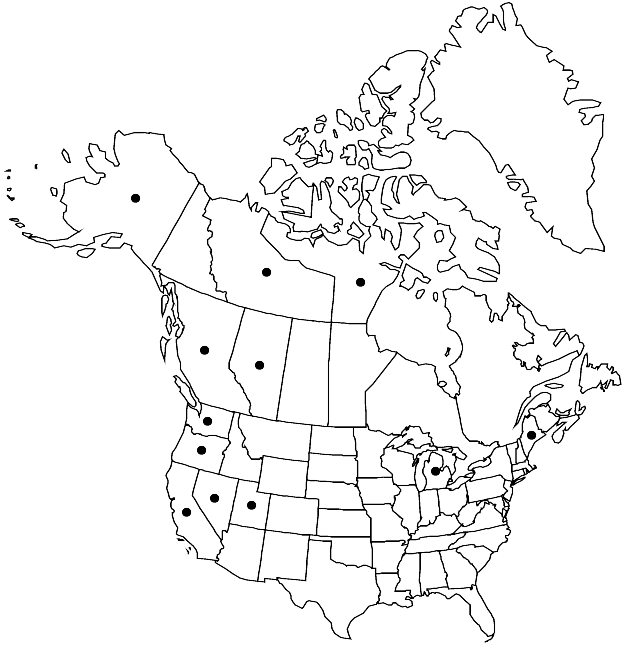Difference between revisions of "Rosulabryum elegans"
Biodivers. Poland 3: 162. 2003.
imported>Volume Importer |
imported>Volume Importer |
||
| Line 54: | Line 54: | ||
|publication year=2003 | |publication year=2003 | ||
|special status= | |special status= | ||
| − | |source xml=https:// | + | |source xml=https://bitbucket.org/aafc-mbb/fna-data-curation/src/2e0870ddd59836b60bcf96646a41e87ea5a5943a/coarse_grained_fna_xml/V28/V28_290.xml |
|genus=Rosulabryum | |genus=Rosulabryum | ||
|species=Rosulabryum elegans | |species=Rosulabryum elegans | ||
Latest revision as of 21:35, 5 November 2020
Plants small, bright to dark green, olive green, or rarely red-green. Stems 0.5–2 cm, evenly foliate, ± julaceous, innovations rosulate. Leaves of main rosette and innovations similar, ± imbricate when dry, sometimes slightly twisted and more loosely set, erect when moist, ovate to obovate, concave, 0.5–1.5 mm; base decurrent or not; margins plane or sometimes recurved to mid leaf, serrulate distally, limbidium present, of 1 or 2 rows of cells; apex broadly acute to acute; costa long-excurrent, awn sometimes hyaline, stout, straight to somewhat twisted when dry; proximal laminal cells short- to long-rectangular; medial and distal cells short-rhomboidal, 14–30 µm wide, 3–4:1, walls thin to thick, not porose. Specialized asexual reproduction very rare, by rhizoidal tubers, brown, (100–)150–200 µm. Sexual condition dioicous. [Capsule strongly nutant, red-brown, pyriform, 2–3 mm].
Habitat: Calcareous rock, soil, mountains
Elevation: moderate to high elevations (1000-4000 m)
Distribution

Alta., B.C., N.W.T., Nunavut, Alaska, Calif., Maine, Mich., Nev., Oreg., Utah, Wash., Europe (including European Russia), w Asia (Turkey).
Discussion
Capsules of Rosulabryum elegans have not been reported from the flora area. The plants are typically dark green with somewhat julaceous stems, but in shaded moist areas the stems become looser with more widely set and somewhat twisted paler green decurrent leaves. These latter plants have been named Bryum stirtonii, but they intergrade completely with R. elegans from drier more exposed sites.
Selected References
None.